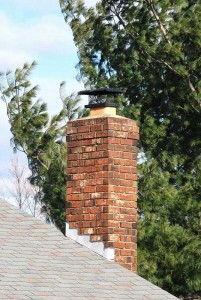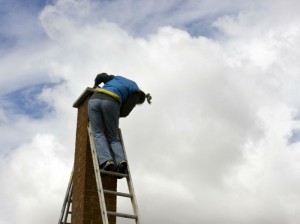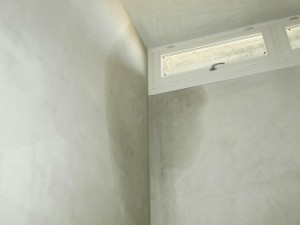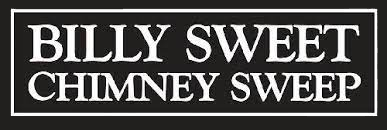by Billy Sweet | Dec 31, 2013 | Chimney Maintenance
Chimney Caps: Your Best Defense from Water Leaks
 Chimney leaks are a common problem in any home especially during seasons when rain is pouring non-stop. Leaks happen when water seeps inside your chimney. They occupy the little openings and cracks in the masonry walls and some go all the way down to the chimney flues and other major parts. A typical rainy day isn’t something to get all jumpy and panicky about, but if the problem is left unfixed, it will eventually cause a bigger problem for you in the long run.
Chimney leaks are a common problem in any home especially during seasons when rain is pouring non-stop. Leaks happen when water seeps inside your chimney. They occupy the little openings and cracks in the masonry walls and some go all the way down to the chimney flues and other major parts. A typical rainy day isn’t something to get all jumpy and panicky about, but if the problem is left unfixed, it will eventually cause a bigger problem for you in the long run.
Here at Billy Sweet Chimney Sweep, we want to thoroughly discuss with you the problem on leaks. Because this problem in particular is the main source of a lot of major problems in the house like carbon monoxide poisoning, molds and the gradual destruction of your chimney walls.
Preventing Leaks with a Chimney Cap
The main reason why leaks happen is the lack of having a chimney crown and chimney cap. They are your first and ultimate line of defense in protecting your chimney. They prevent external factors from getting in, most especially water which could damage your chimney’s walls and overall structure. This is the best way to waterproof your chimney and fireplace. Installing a chimney cap will definitely do the trick and will absolutely help your chimney be more efficient and it will last you more years than expected.
It’s always best to seek professional help in installing the chimney caps. It’s a no-no to do it yourself because before we even install a chimney cap or crown, we still have to inspect and survey the chimney for any other damage or repair it may need. We at Billy Sweet Chimney Sweeps make sure that your chimney is protected from any leaks, blockages or any occurrence of that sort. You might spend a few extra dollars but rest assured, it will be money well spent.
by Billy Sweet | Sep 30, 2013 | Chimney Maintenance
Something Is Wrong, What Now?
Many people do not give any thought to chimney repairs until it becomes clear that there is a problem. If the chimney is starting to smell strange or is producing a great deal of smoke, it may be time to hire a certified chimney sweep to investigate. A chimney specialist is a critical piece, because their training and experience give them the ability to see problems, or potential problems that you don’t notice or cannot interpret.
So you know you need to call a chimney professional, how often does your chimney need an inspection? This should be done on an annual basis, not just when there seems to be a problem. In fact, having the chimney inspected each year is the best way to avoid most common chimney problems before they become major issues. This can save you money and prevent any damage to the structure of your home.

A yearly inspection by a certified sweep helps you see problems before they become more expensive and more dangerous.
Replacing or relining the flue liner is a common repair. The liner protects the inside of the chimney from corrosive gas, chemicals and general wear and tear on the flue. In many cases, chimney professionals find that the liner has started to detach from the flue, making it ineffective. Older homes may not have a flue liner at all and, if this is the case, the chimney should not be used until one is properly installed.
A great deal of chimney damage is caused by excessive amounts of moisture that collect within the flue. This may be the result of rain or snow that makes its way into the chimney and collects there. A simple way to fix this problem is by having a properly-sized chimney cap installed. This little piece fits right over the top of the chimney and prevents unwanted material from getting inside. This can prevent damage such as deteriorating bricks, dangerous molds or damage from critters setting up a home in your chimney.
Sometimes, a chimney inspection will show that there are cracks inside of the chimney as a result of foundation settlement. This is a serious issue that a homeowner would not likely know about if they did not have a proper inspection. In this case, it may be necessary to have the entire chimney refurbished or replaced. This may seem like a major undertaking but, if it is not addressed in a timely manner, the damage could spread throughout the foundation of the home.
It is important to remember that even the simplest of chimney repairs should only be handled by a professional chimney repair person. The average person who tries to repair their chimney may end up causing more problems instead of solving them. In addition, they put themselves at serious risk for bodily injury if they are not used to climbing up on the roof. The Chimney Safety Institute of America is a great place to find professionals who are trained to deal with many of these issues. Annual cleaning and inspection is a must-do for homeowners wanting to save money in the long term. Catching little issues before they become catastrophic is why expert eyes are needed.
by Billy Sweet | Aug 27, 2013 | Chimney Maintenance
A Chimney’s Worst Enemy
Water isn’t just fire’s worst enemy—homeowners with masonry chimneys need to beware, too. While a chimney is the most ignored and neglected part of the home, it has an important job and needs to be taken care of. One way you can do this is by protecting your chimney against water damage.
Masonry chimneys are made using combinations that include brick and mortar, concrete, stone, clay, steel and cast iron. These materials are porous and susceptible to water that can damage both your chimney and the structure of your home. Some signs of water damage are moisture on brick, dripping in fireplace, or wet spots on the ceiling or walls.

Sometimes water damage is visible near ceilings. Water is a threat to the structure of your home.
Water damage can cause chimneys to tilt or collapse, damper assemblies to rust, rotting rafters, stained and ruined walls, ceilings and wall coverings. It can also cause cracks, rust and deterioration of the flue lining system.
The number on solution for a chimney with water issues is to install a chimney cap. Many insurance companies require chimneys to be capped to minimize water damage and other issues. Chimney caps keep rain and moisture out, serve as spark arrestors, and keep animals and birds out, as well as debris such as leaves and twigs.
Other things that may need to be checked are the seal between the roofing and chimney (called flashing), the chimney crown, or the mortar joints. If any of these things are damaged, they will need to be replaced or repaired.
Talk to your chimney specialist during your annual cleaning about the many products available for waterproofing your chimney. Choose only vapor permeable sealers, which allow the chimney to breathe so that moisture doesn’t become trapped inside the chimney and deteriorate it.
 Chimney leaks are a common problem in any home especially during seasons when rain is pouring non-stop. Leaks happen when water seeps inside your chimney. They occupy the little openings and cracks in the masonry walls and some go all the way down to the chimney flues and other major parts. A typical rainy day isn’t something to get all jumpy and panicky about, but if the problem is left unfixed, it will eventually cause a bigger problem for you in the long run.
Chimney leaks are a common problem in any home especially during seasons when rain is pouring non-stop. Leaks happen when water seeps inside your chimney. They occupy the little openings and cracks in the masonry walls and some go all the way down to the chimney flues and other major parts. A typical rainy day isn’t something to get all jumpy and panicky about, but if the problem is left unfixed, it will eventually cause a bigger problem for you in the long run.

